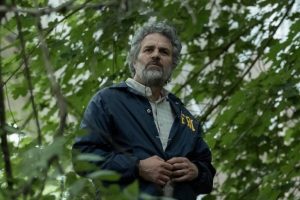 Directed by Darren Aronofsky (Paramount Pictures, 2014)
Directed by Darren Aronofsky (Paramount Pictures, 2014)
How do you hear a story again for the first time? This is a perennial challenge for all biblical films. Sadly, too many filmmakers aim for some notion of “fidelity” through a lens of religious devotion, and the results are tragically boring. What they forget along the way is inspiration, and Noah has this in abundance.
In Darren Aronofsky’s hands the story of Noah and the ark from Genesis is turned into a visionary meditation on the mysteries of God’s will, human nature, and ecological responsibility. Strange apocalyptic imagery confronts the viewer in a world both mythical and frighteningly real. In a haunting dream Noah sees the world’s destruction through a great deluge. Disturbed by this dream, Noah seeks to understand what “the Creator” is calling him to do. What follows is a sublime and harrowing journey of familial and personal turmoil as Noah attempts to discern the Creator’s will for the whole of creation.
Aronofsky has made a name for himself with dark, stylish films often centering upon the relentless obsession of a central character. In Noah Russell Crowe takes that relentless obsessive quality to dizzying heights as all human life weighs in the balance of his discernment of God’s calling. Some audiences will find the film too dark, others its imaginative leaps too extraordinary. Despite its flaws, however, the film does originate from a biblical imagination where angels converse with humans, God speaks through dreams, and incomprehensible horrors and moral dilemmas confront good people like Abraham and Job.
Importantly, Noah is a film that stands on its own. It tells its own story in its own unique visual language. It raises important theological questions about justice, mercy, and humanity’s relationship to nature. And it does this in a film that has an appeal far beyond religious audiences. To make these ideas compelling to today’s blockbuster-seeking audiences takes imagination, and this Aronofsky certainly possesses.
This article appeared in the June 2014 issue of U.S. Catholic (Vol. 79, No. 6, page 42).












Add comment